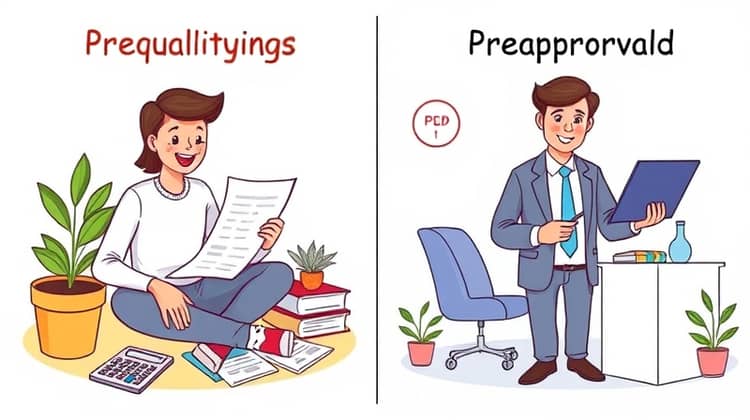Prequalifying for a Loan: Unlock Advantages Before You Apply

In today’s financial landscape, securing a loan can be a daunting task. With various options available, it is crucial for borrowers to understand the prequalification process. Prequalifying for a loan is an essential first step that provides valuable insights and prepares you for the path ahead.
This article explores the concept of prequalifying for a loan, highlighting its significance, the process involved, and the associated benefits. Understanding prequalification can empower you to approach lenders with confidence and clarity, ensuring you are well-equipped to make informed financial decisions.
What is Prequalifying?

Prequalifying for a loan is a preliminary assessment that gives lenders an idea of how much you may be able to borrow based on your financial situation. It typically involves providing basic information about your income, debt, and credit history without a credit check. This initial assessment helps both lenders and borrowers identify suitable loan options.
While prequalification is not a promise or guarantee for a loan, it is a vital tool that can streamline the application process. It allows borrowers to gain a clearer picture of their financial standing, which can significantly aid in making informed decisions about their loan options.
- Provides an estimate of how much you can borrow
- Helps identify potential loan options
- Gives an overview of your financial situation
Overall, prequalifying is an important first step in the loan process, paving the way for more tailored discussions with lenders.
Why Prequalifying is Important

Prequalifying serves several critical functions in the loan application process. First, it allows potential borrowers to assess their financial readiness for a loan. This early insight can prevent individuals from pursuing loans that may be out of reach, thus saving time and effort in the long run.
Secondly, prequalification can enhance your negotiating power when you finally decide to apply for a loan. Knowing your estimated borrowing capacity means you can better advocate for favorable terms and conditions. Additionally, a prequalification letter can signal to sellers that you are a serious buyer, especially in competitive markets.
Lastly, prequalifying can provide a sense of confidence to borrowers, minimizing anxiety surrounding the loan application process. Knowing what to expect revolves around solid data about your financial standing.
The Prequalification Process

The prequalification process is generally straightforward and involves a few key steps.
- Gather your financial information including income, debts, and credit score
- Submit your information to a lender, either online or in person
- Receive an estimate of how much you may be able to borrow
By following these steps, you can quickly understand your financial options and prepare for the next phase in the loan process.
Benefits of Prequalifying

Prequalifying for a loan comes with several significant benefits that can enhance your borrowing experience.
- Saves time by narrowing down loan options
- Helps you understand your financial limits
- Decreases chances of rejection after formal application
Ultimately, prequalifying can lead to a smoother and more efficient loan application process.
Impact on Credit Score

One common concern borrowers have is how prequalifying might impact their credit score. Fortunately, the prequalification process typically involves a soft credit check, which does not affect your credit score.
In contrast, when you submit a formal loan application, lenders perform a hard credit inquiry, which can have a slight negative impact on your credit score. Therefore, getting prequalified allows you to assess your borrowing power without damaging your credit.
Prequalifying vs. Preapproval

It's essential to differentiate between prequalifying and preapproval, as both terms are often used interchangeably but represent different stages in the loan process. Prequalifying is an informal assessment based on self-reported financial data, while preapproval involves a more thorough check by the lender, including verifying your financial information and performing a hard credit inquiry.
Preapproval is generally a stronger indication of your borrowing power and reflects a more serious commitment from the lender. A preapproval letter can often enhance your credibility as a borrower when negotiating with sellers. Additionally, preapproval can expedite the loan process once you’ve chosen a loan, as much of the groundwork has already been done.
Tips for Successful Prequalification

To ensure a successful prequalification process, follow these important tips.
- Gather all necessary financial documents early
- Be honest about your financial situation when providing information
- Shop around and seek prequalification from multiple lenders
By employing these tips, you can maximize your chances of understanding your borrowing capacity and securing a suitable loan.






